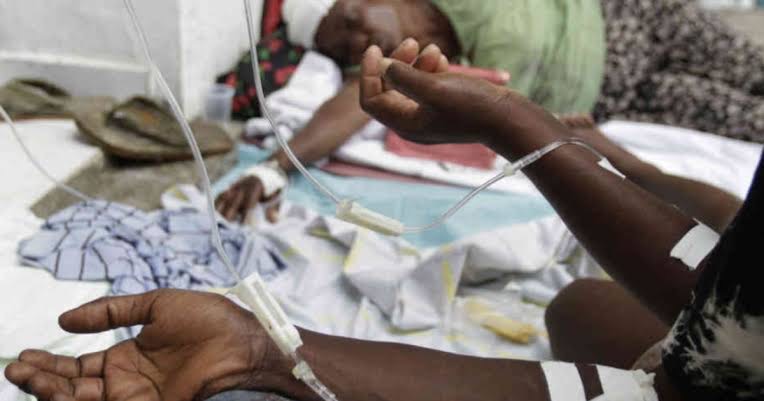A recent report by the Nigeria Centre for Disease Control and Prevention (NCDC) has revealed a staggering 128% increase in cholera cases in the country, sparking concerns among public health experts and authorities. As of September 1, a total of 7,056 suspected cases were reported, compared to 3,096 cases at the same point in 2023.
Lagos state has been identified as the epicenter of the outbreak, accounting for a whopping 60% of all cases, with Lagos Island being the most affected local government area. The death toll has also risen by 106% with 204 fatalities reported in 2024, prompting the NCDC to intensify efforts to contain the outbreak.

The surge in cholera cases has been attributed to a combination of factors, including inadequate sanitation, poor waste management, and lack of access to clean water. Public health experts warn that the situation could spiral out of control if urgent measures are not taken to address the root causes of the outbreak.
Dr. John Okoro, an epidemiologist, highlighted the impact of inadequate sanitation in densely populated urban areas, stating that “the lack of proper waste management systems and access to clean water in areas like Lagos Island has made it a breeding ground for waterborne diseases.” He emphasized the need for government intervention, stressing that “improving access to safe drinking water and investing in sanitation infrastructure should be a top priority.”
Environmental health specialist Peter Adamu also commented on the importance of addressing long-standing infrastructure gaps, noting that “slum areas, particularly in Lagos, have been neglected for years, which not only puts residents at risks but increases the overall public health burden on the country.” He called for a comprehensive approach to urban health planning, underscoring the need for multi-sectoral collaboration between health, environmental, and urban planning authorities.

The NCDC has identified other heavily affected states as Bayelsa, Katsina, and Zamfara, with vulnerable groups, particularly children under five, being the most affected. The agency is urging increased public awareness and intervention to curb the outbreak, as the country struggles to contain the spread of the disease.
Cholera, a severe diarrhea illness caused by the bacterium Vibrio cholera, remains a significant health challenge, especially in regions with inadequate sanitation and clean water access. Understanding the transmission mechanism of cholera is crucial in curbing its spread and implementing effective prevention measures.
As the situation continues to unfold, public health experts and authorities are racing against time to contain the outbreak and prevent a looming health crisis. The government has announced a state of emergency on cholera, and the NCDC is intensifying efforts to contain the outbreak through rapid diagnostic testing and stool culture tests.
However, experts warn that more needs to be done to address the root causes of the outbreak, including investing in sanitation infrastructure, improving access to clean water, and implementing effective waste management systems. Without these changes, communities in urban slums will continue to suffer from preventable outbreaks, and the country will struggle to achieve its public health goals.































